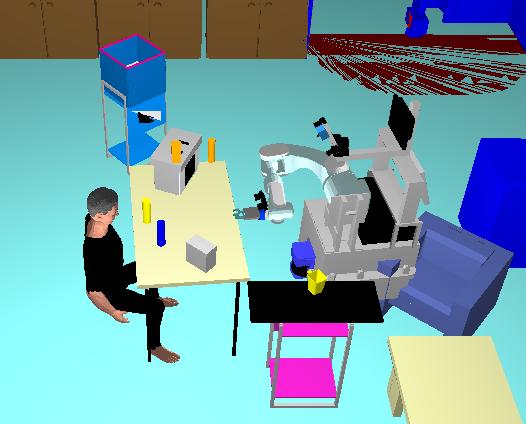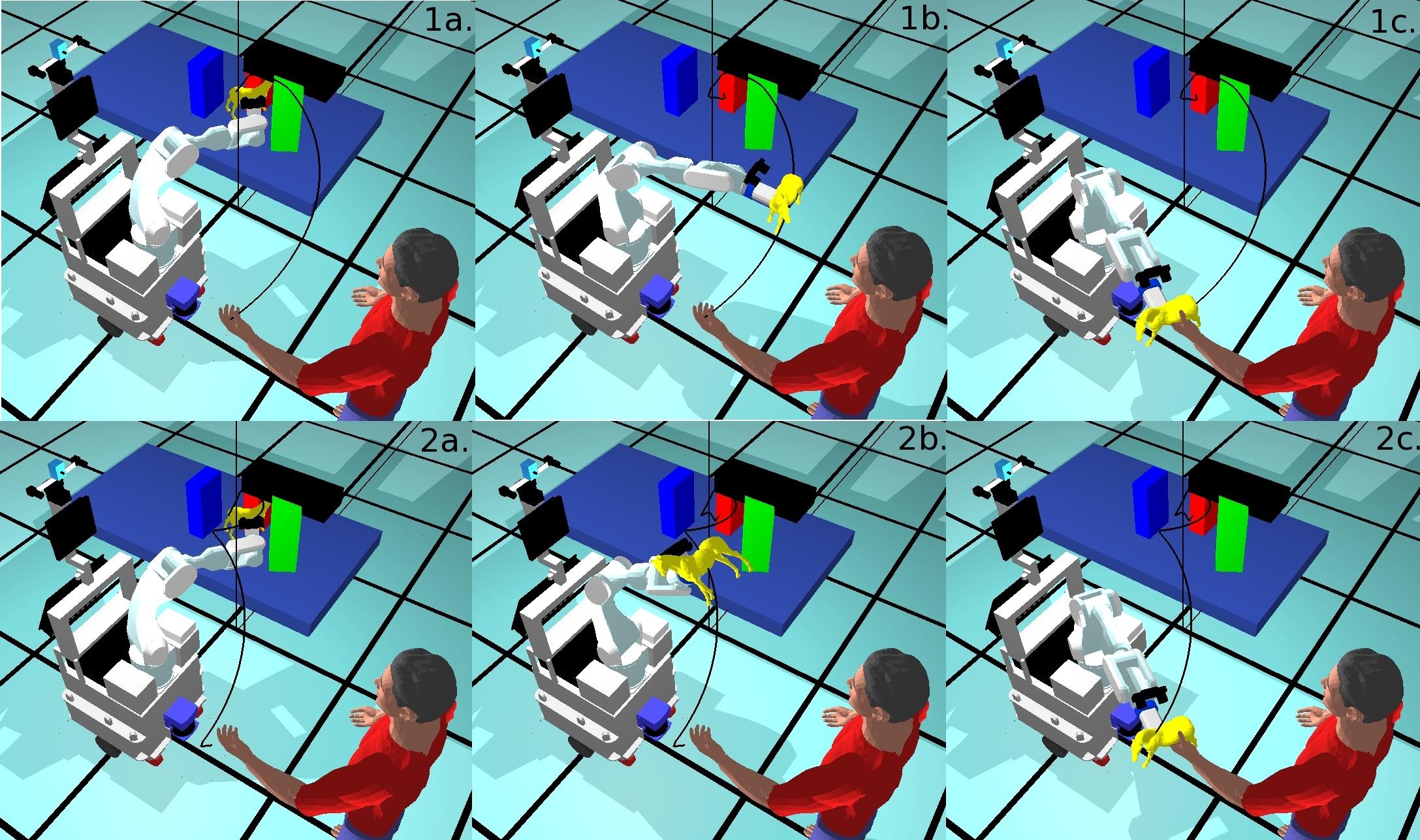|
Size: 1012
Comment:
|
Size: 2249
Comment:
|
| Deletions are marked like this. | Additions are marked like this. |
| Line 3: | Line 3: |
| ||<tablestyle="width:100%;text-align:center;" style="border:0px"> {{attachment:move3d_screenshot1.jpg}}||<style="border:0px"> {{attachment:move3d_screenshot2.jpg||width=300px}} || | ||<tablestyle="width:100%;text-align:center;" style="border:0px"> {{attachment:move3d_screenshot1.jpg||height=300px}}||<style="border:0px"> {{attachment:move3d_screenshot2.jpg||height=300px}} || |
| Line 9: | Line 9: |
| == Installation == BioMove3D comes as a set of libraries and executables. To name a few: * `libmove3d` (the core library) * `libhri` (the human-robot interaction libraries) * `move3d-studio` (the graphical development environment) === Via robotpkg === The supported way to install `libmove3d` is through '''robotpkg''': `robotpkg` is a package management system for robotics module we use at the LAAS. It handles dependencies and compilation automatically. If you don't know it, [[http://robotpkg.openrobots.org|have a look here]]. You will need as well the ''work-in-progress'' repository: {{{ > cd $ROBOTPKG_BASE > git clone http://softs.laas.fr/git/robots/robotpkg-wip.git }}} Once installed, you can add the `libmove3d` package very easily: {{{ > cd $ROBOTPKG_BASE/wip/libmove3d > make update }}} You're done! === From the sources === To get the latest version of BioMove3D, you can check-out the sources with GIT: {{{ > git clone http://trac.laas.fr/git/robots/BioMove3D.git }}} TODO: list dependencies! You can then compile the stock `libmove3d` with: {{{ > cd BioMove3D > mkdir build && cd build > cmake -DGENERATE_LIBMOVE3D .. > make install }}} |
Move3D
|
|
Programming system for motion planning, includes services like collision detection, robot kinematics and an OpenGL viewer.
BioMove3D is used to develop algorithms to compute kinematic (geometric) paths in cluttered 3D environments for a generic multi-body system with any type of links, it is also used to compute molecular (nano particles) motions. The configuration space representation coded inside the software enables the development of generic planning methods implemented in C/C++ such as probabilistic roadmaps (PRM) and lately rapidly exploring random trees (RRTs). The newest investigation concerns the study of large molecular systems and human aware motion planning for friendly robots.
Installation
BioMove3D comes as a set of libraries and executables. To name a few:
libmove3d (the core library)
libhri (the human-robot interaction libraries)
move3d-studio (the graphical development environment)
Via robotpkg
The supported way to install libmove3d is through robotpkg:
robotpkg is a package management system for robotics module we use at the LAAS. It handles dependencies and compilation automatically. If you don't know it, have a look here.
You will need as well the work-in-progress repository:
> cd $ROBOTPKG_BASE > git clone http://softs.laas.fr/git/robots/robotpkg-wip.git
Once installed, you can add the libmove3d package very easily:
> cd $ROBOTPKG_BASE/wip/libmove3d > make update
You're done!
From the sources
To get the latest version of BioMove3D, you can check-out the sources with GIT:
> git clone http://trac.laas.fr/git/robots/BioMove3D.git
TODO: list dependencies!
You can then compile the stock libmove3d with:
> cd BioMove3D > mkdir build && cd build > cmake -DGENERATE_LIBMOVE3D .. > make install
Documentation
Doxygen documentation is available online.


